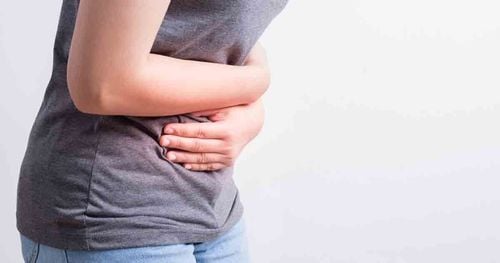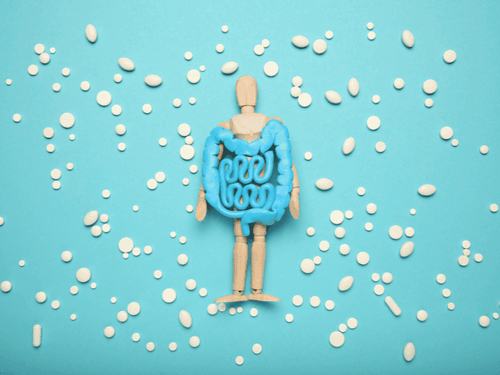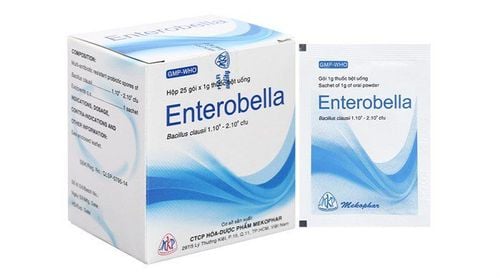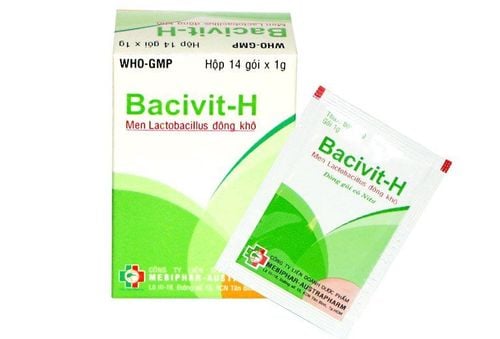This is an automatically translated article.
Postbiotics are the by-products of the metabolism of probiotics, also known as the fermentation of probiotics bacteria. Postbiotics also play an important role as beneficial bacteria and soluble fiber for the body. Postbiotics are a by-product of probiotics and an ingredient that plays an extremely important role in health, especially the digestive system.
1. What are Postbiotics?
Postbiotics or non-viable microbial cells also known as fermented infant formula (FIF) are defined as substances produced by your microorganisms while they are active. These are bioactive compounds that are produced when probiotics eat certain types of fibrous molecules to grow. Postbiotics are released naturally by the living organisms present in the body. That organism is an ecosystem consisting of millions of billions of bacteria, viruses, fungi, protozoa,...
Although biologically active compounds or Postbiotics are considered waste products of microorganisms probiotic bacteria. However, they bring many different health benefits to your body.
2. Benefits of Postbiotics
Postbiotics are ingredients that play an important role in the digestive system. They are effective in keeping the balance of the microbiota (a large collection of microorganisms living in a symbiotic form in the human body). When pathogens take over the microbiome, physiological disorders will occur, resulting in digestive problems such as diarrhea, allergies, etc. When digestive disorders are usually treated with Specific medications include anti-inflammatory or immunomodulatory drugs.
At the same time, Postbiotics also have the same health benefits as probiotics:
Strengthen the body's resistance; Prevent inflammation; Has anti-cancer effect; Has antibacterial ability and prevents infection; Limit the risk of cardiovascular diseases; Supports the formation of oxytocin, which is an active substance that increases uterine contractions and is effective in supporting reproductive functions. Postbiotics, on the other hand, do not contain microorganisms, so the risk of complications from adding new bacteria to your microbiome is lower and safe for most people. But people who have a weak immune system, are seriously ill, or are recovering from surgery can develop a probiotic infection.
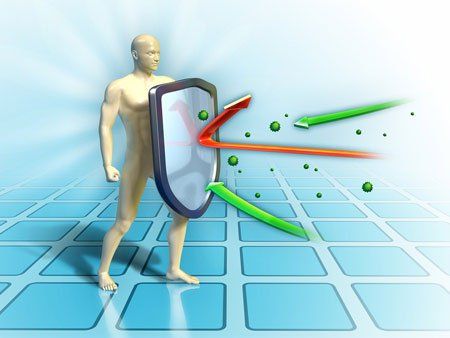
Postbiotics giúp tăng cường sức đề kháng cho cơ thể
3. Some Additional Sources of Postbiotics
The best way to balance your microbiome is through a healthy and complete diet. If you feed your probiotic bacteria with the right foods, they will create postbiotics for you.
You should eat a high-fiber diet that can improve your microbiome. Some foods help improve the microbiome such as:
Whole fruits, vegetables, legumes and whole grains; Garlic, onions, leeks,...; Asparagus; Banana; Seaweed, grape seaweed. When changing your diet, add new foods slowly. Eating foods with probiotics won't necessarily increase your postbiotics in your body, so be careful when adding substances as well as adding probiotics to your daily diet.
4. Undesirable effects of Postbiotics
The use of probiotic supplements to increase the production of postbiotics is beneficial. However, you may experience gastrointestinal side effects such as gas, bloating, and mild stomach discomfort. These signs tend to go away as your body adjusts.
On the other hand, postbiotics should be limited to some people who are suffering from diseases such as
People who have just undergone surgery; People with structural disorders, cardiac activity; People who are suffering from gastrointestinal disorders such as diarrhea, constipation, ...; Pregnant woman; Children. When any dietary supplement is required, it is important to consult a healthcare professional prior to use, especially if you have any unusual health conditions or are taking any medicine.
Please dial HOTLINE for more information or register for an appointment HERE. Download MyVinmec app to make appointments faster and to manage your bookings easily.
Reference sources: webmd.com, healthline.com



